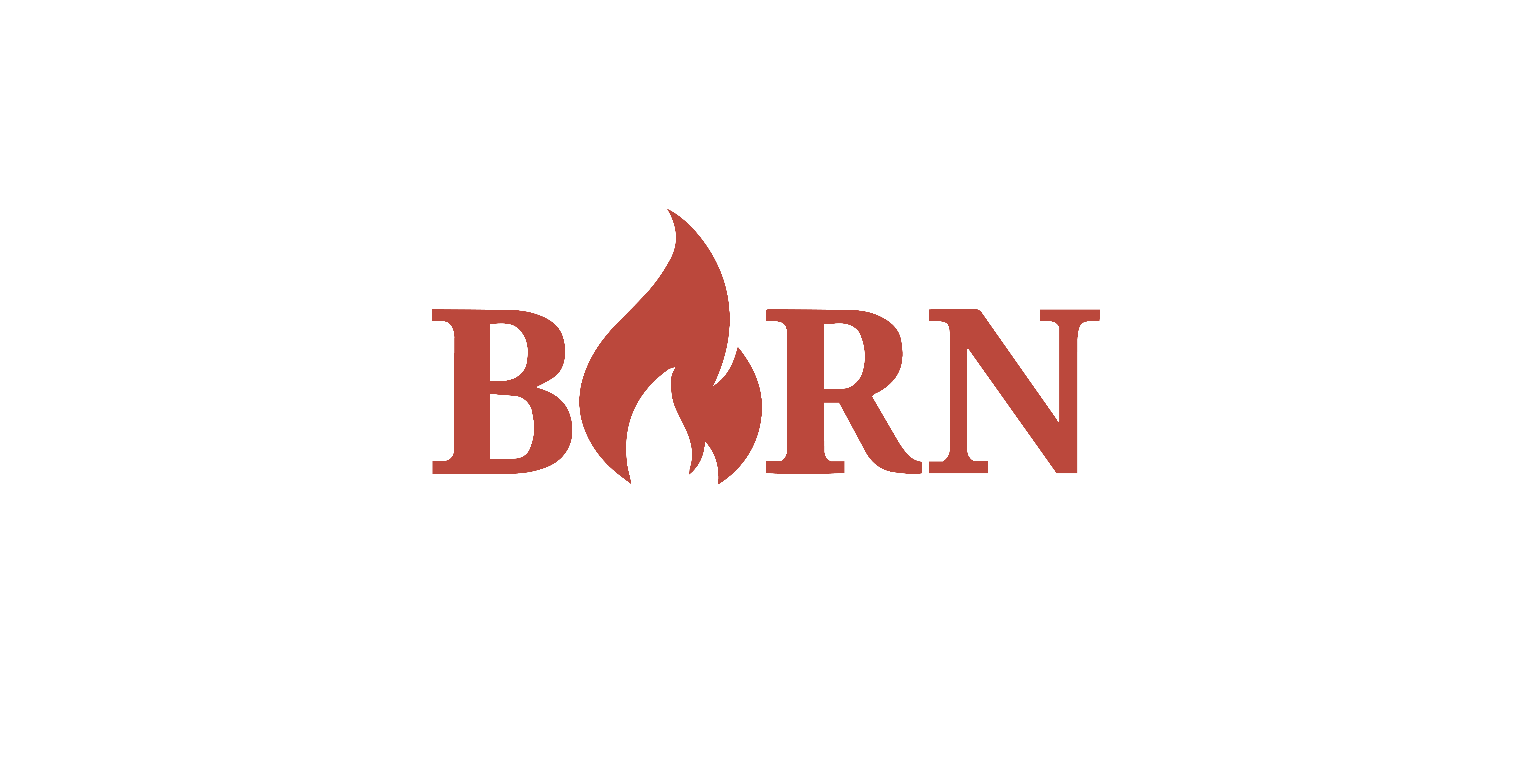On June 12, 2024, the final half-yearly meeting of Erasmus + BURN project managers took place. On the agenda were issues of project registration and reports of those responsible for work packages.
The coordinator of the project from TNPU, Iryna Zadorozhna, welcomed the participants of the meeting and familiarized those present with the current state of affairs regarding the registration of the project in the CM of Ukraine. All the necessary documents have been sent to the Ministry of Education and Culture in order to receive a letter of support for further registration in the Ministry of Education and Culture. The delay was caused by the need to agree the equipment purchase list with suppliers and approve this list with the ECEA project officer in Brussels. The lack of registration, unfortunately, makes it impossible to carry out some of the actions of the work packages, in particular, the study visits to Latvia and Germany, planned for the fall of 2024. The partners agreed to ask the project officer to postpone the dates of the study visits until after receiving the funding. Next, Iryna Zadorozhna offered to listen to the reports of those responsible for the work packages, according to the agenda.
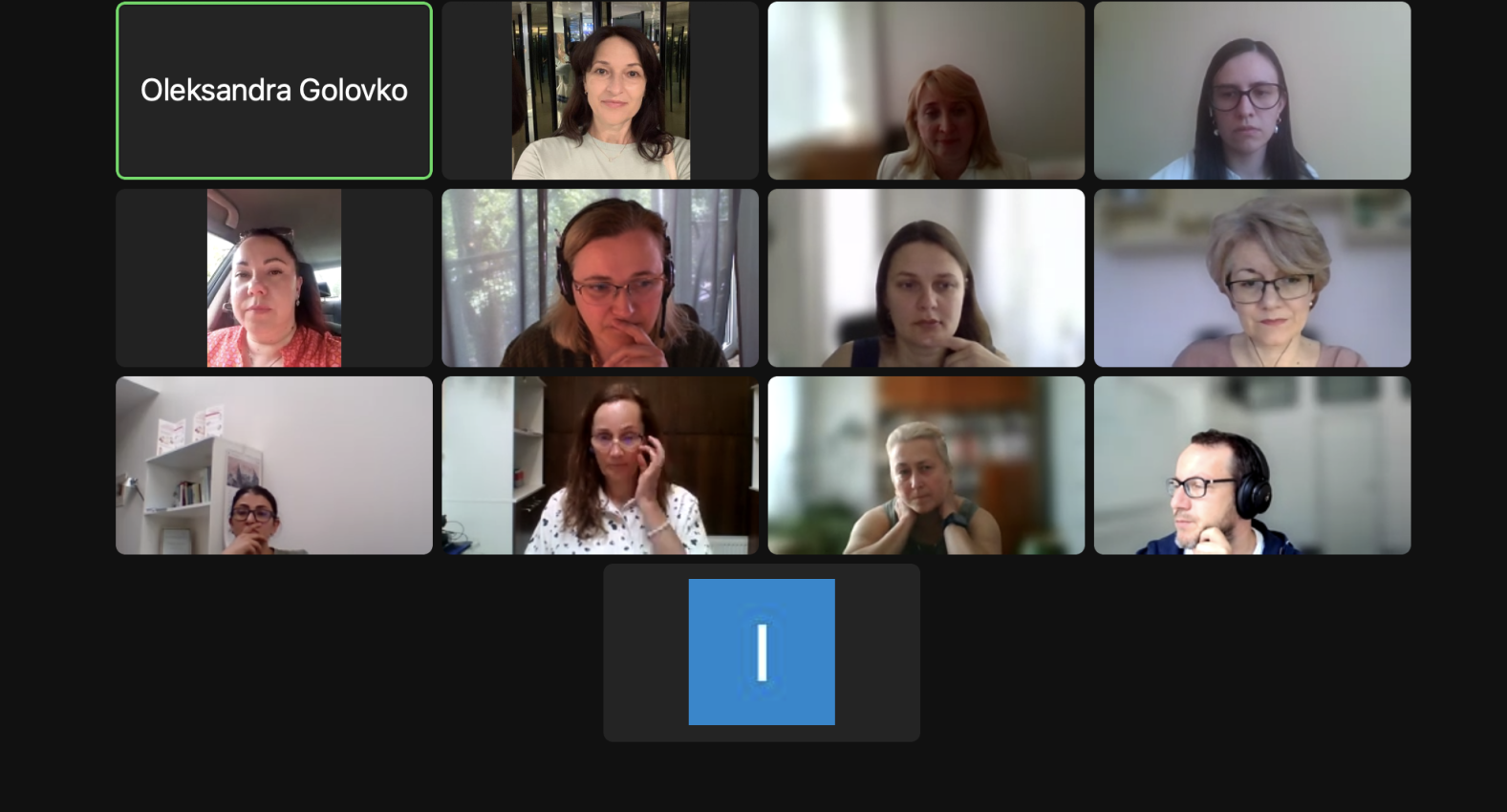
WP 1. Management. All current activities of the project take place according to the tasks of the work package, the necessary work meetings are held on time, and documents are prepared. In particular, the first results of the project were successfully reported through the SyGMa system, the consortium members were presented with template tables for the current collection of information about the project activities and about activities for the distribution of results (dissemination) - conferences, seminars, round tables, publications, etc. Iryna Zadorozhna presented all the forms and explained the filling procedure, and also offered a form for the half-yearly report. The partners agreed to meet every six months to discuss the state of the project's finances.
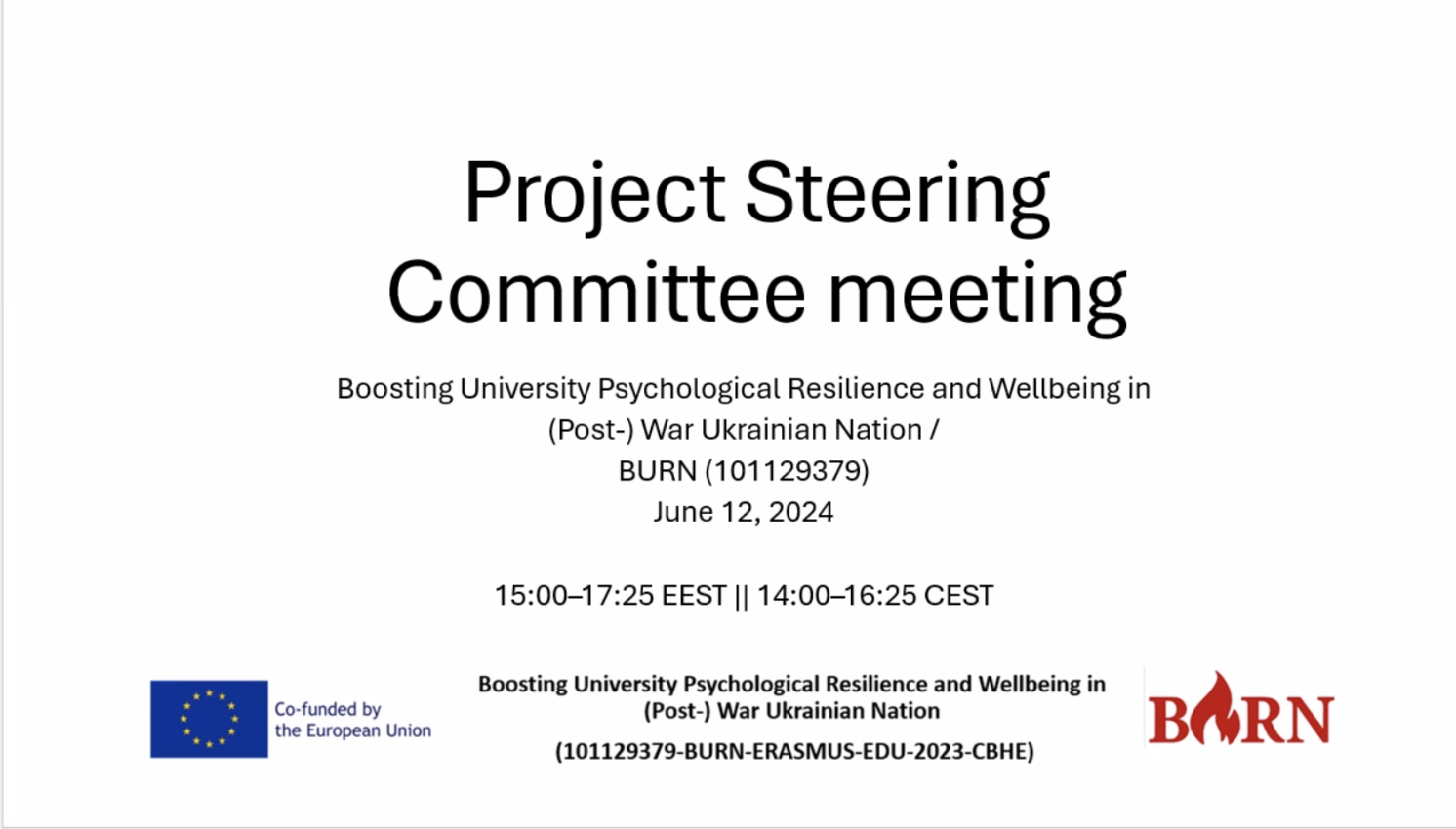
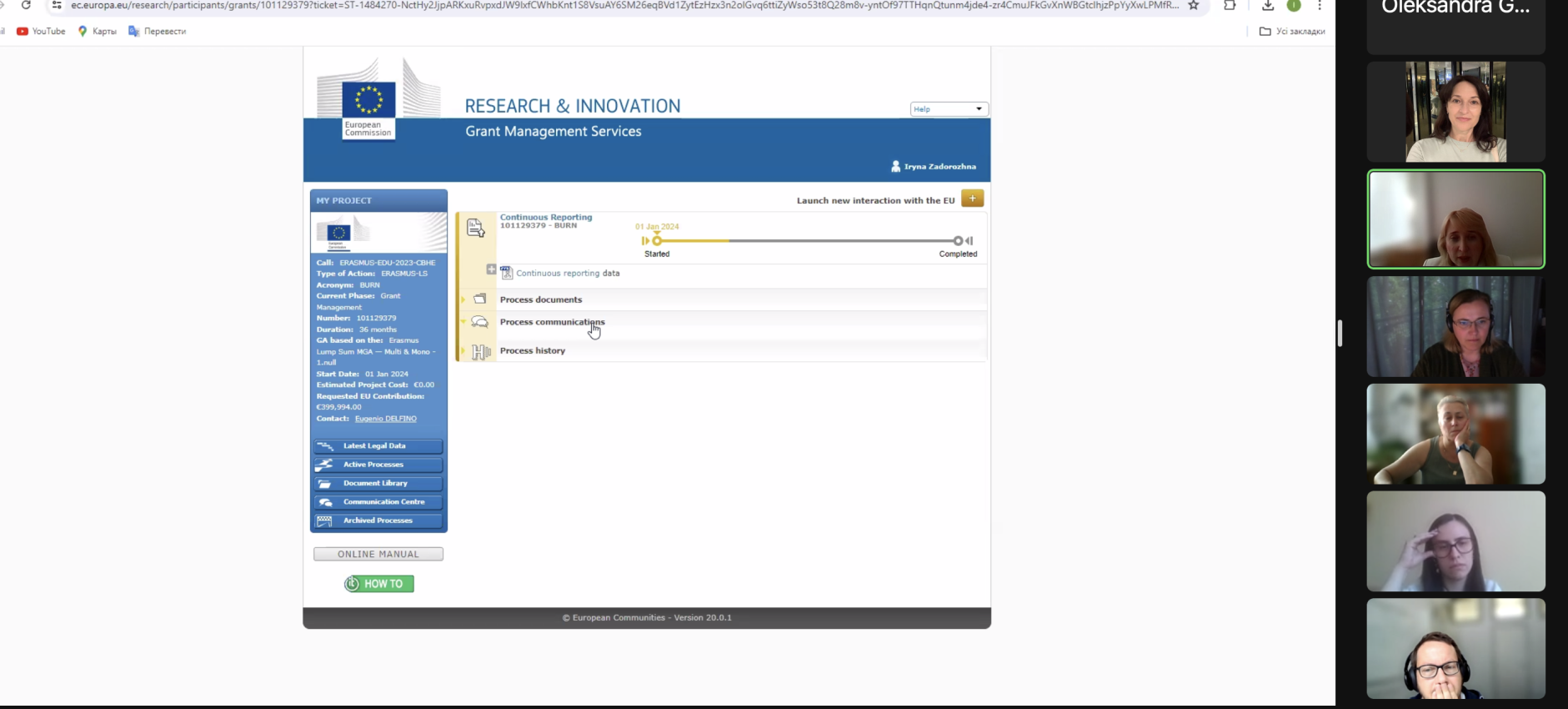
WP 2. Educational visit to Latvia, Riga University from September 23 to 27.
Yeva Stockenberg expressed her satisfaction with the fact and quality of holding 6 webinars on the exchange of experience (22.04, 29.04, 7.05, 14.05, 22.05, 27.05) on the creation of training programs of courses in European universities. She also shared the thematic plan of the study visit to Latvia from September 23 to 27, and offered it for discussion and expression of wishes by Ukrainian partners.
The plans for the educational visit include thematic trainings, the purpose of which is to show how psychologists are trained in Latvia at the bachelor's and master's levels of education, how teachers plan succession in the level of knowledge and skills of students, how teachers and practical psychologists of secondary schools take advanced training courses.
Colleagues from Latvia offer to visit existing specialized centers of psychological assistance and learn how they work, how student psychologists in practice learn to provide real help to real people (for example, victims of violence).
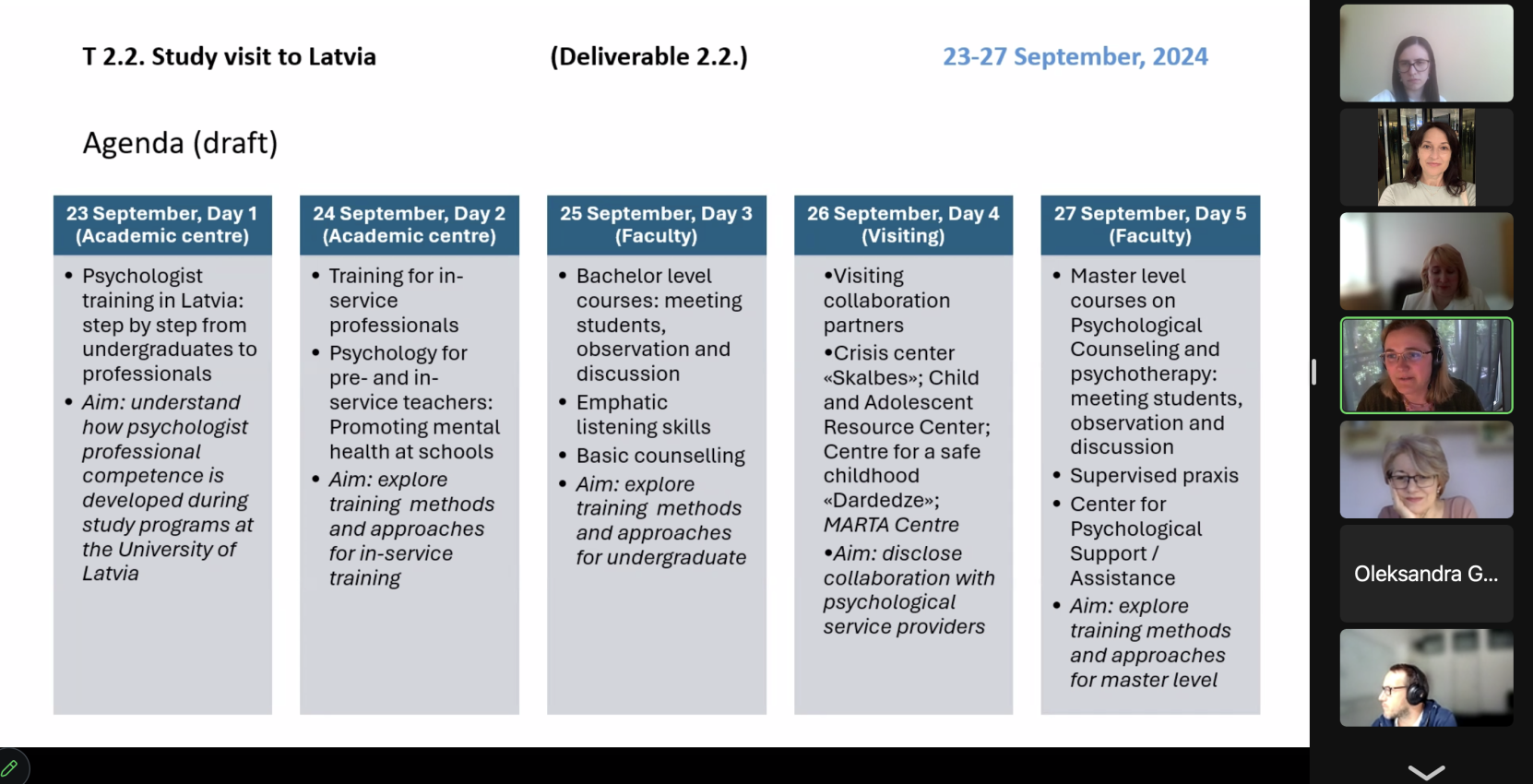
WP 3. Webinars on the exchange of experience. Olesya Golovko, a representative of the University of Tartu, expressed her satisfaction with the quality of the webinars held during April-May.
and proposed a study visit program to Estonia, to the University of Tartu, in October. In particular, she emphasized that the condition for receiving advanced training certificates will be not only attendance at webinars, but also parallel completion of courses on MOODLE of the University of Tartu.
WP 4. Educational visit to the Institute of Psychology in Berlin. Lars Kuhinke talked about the preparation for the study visit in early November, presented the plan of events and suggested holding round tables in an online format.
WP 5. Distribution. Kateryna Bondar, a representative of the Kryvorizh University, presented the dissemination plan and emphasized the importance and necessity of spreading information about the project through social networks, especially Facebook, LinkedIn and Research gate, in order to raise the level of awareness about the project. The BURN project is considered the first in Ukraine to deal with such an important problem as stress resistance during the war and post-war reconstruction of the country. The Ministry of Education and Science of Ukraine wants to create similar centers in every Ukrainian university. Kateryna Bondar also informed about the readiness of the project site https://burn.kdpu.edu.ua/
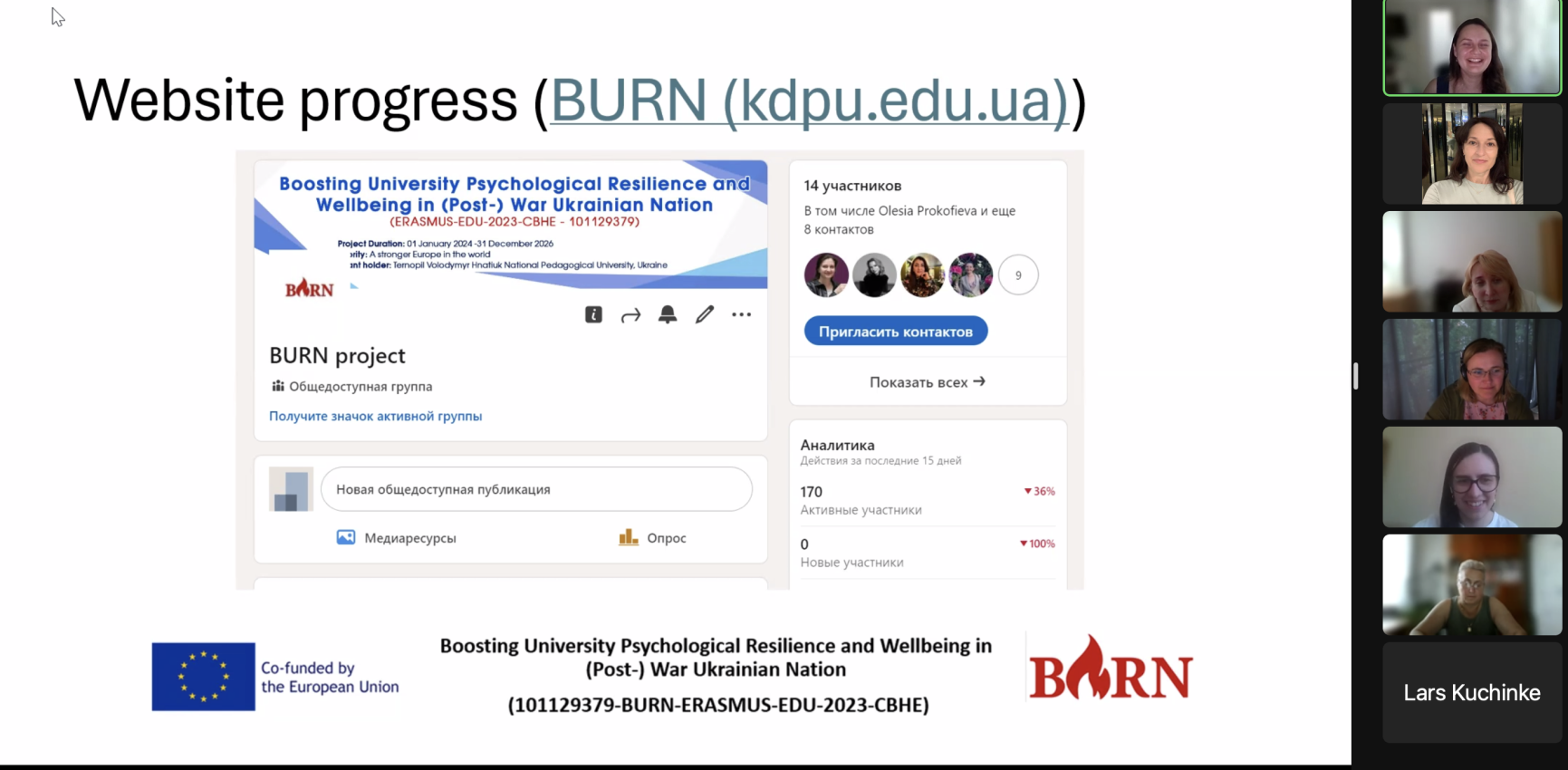
WP 6. Quality control. Tetyana Borozentseva, project manager from GIIIM, presented the analysis of the results of the survey about the project's kick-off meeting in February. She emphasized that, in general, all participants gave positive feedback and highly appreciated the quality of the preparation and conduct of the event. Tetyana Borozentseva also offered for discussion a feedback questionnaire on the held webinars on the exchange of experience. The partners expressed a desire to reduce the number and detail of the questionnaire questions.
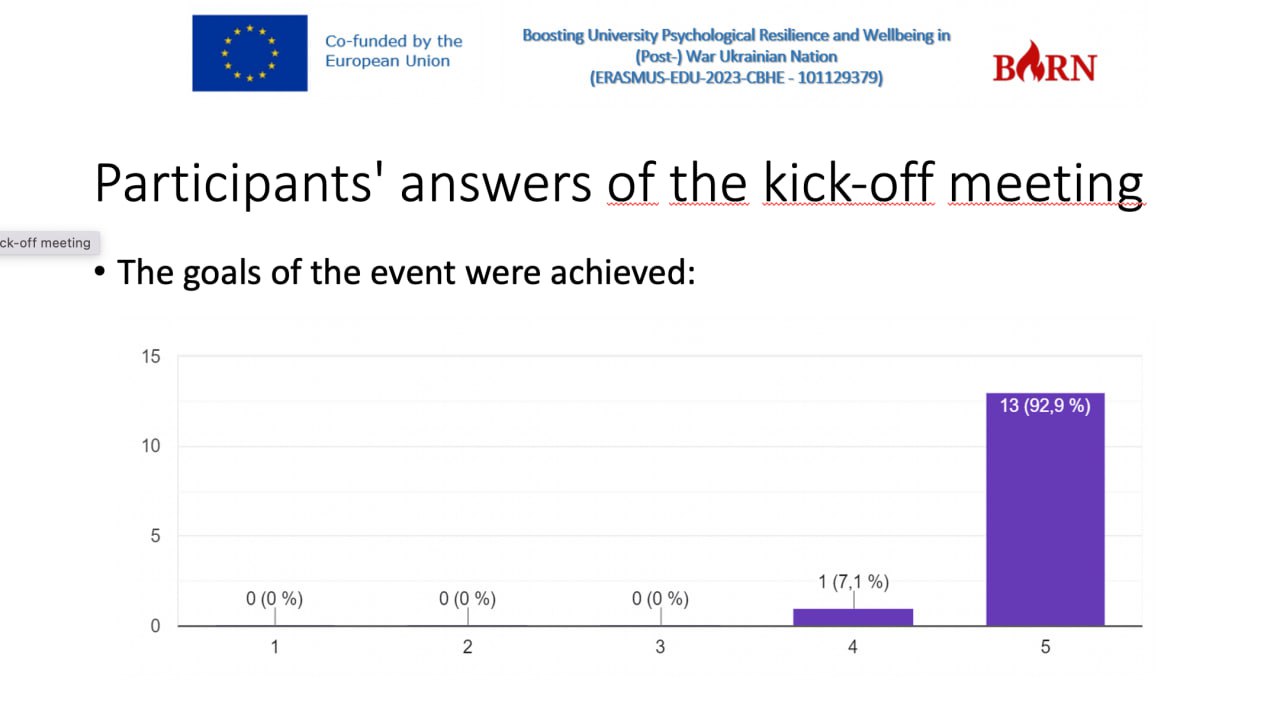
The meeting ended with wishes to the partners for a successful end of the academic year and an expression of gratitude to the Armed Forces of Ukraine, who protected the sky during the meeting.

